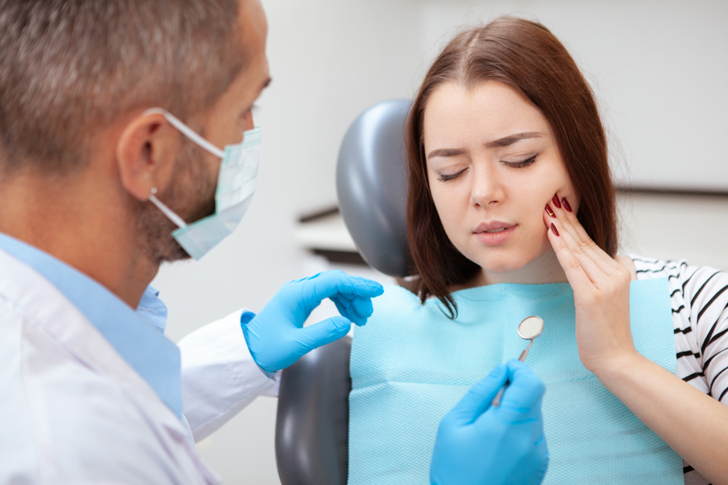Dental emergencies can occur at any time and often when you least expect them. Immediate access to emergency dental care can greatly impact the outcome of dental treatments and the health of patients. Here, we explore the critical aspects and advantages of comprehensive around-the-clock emergency dental services and care.

The Scope of Emergency Dental Services
Emergency dental services are specialized treatments provided for immediate relief from oral health issues that require urgent attention. These issues often include severe toothache, knocked-out teeth, cracked or broken teeth, abscesses, and infections, among others. The scope of emergency dental care also covers treatment for acute pain management, bleeding control, and provision of temporary restorative techniques to preserve the structure and aesthetics of the patient’s teeth.
Importance of Timely Access to Care
The timing of care in emergency dental situations is crucial. For example, a knocked-out tooth has the highest chance of being saved if reimplanted within an hour of the accident. According to the American Association of Endodontists, more than 5 million teeth are knocked out each year in children and adults, with sports injuries accounting for a significant number of these incidents. Quick and proper action can save the tooth, thus preserving a natural smile and preventing other costly and time-consuming dental treatments in the future.
In cases of severe infections or abscesses, delays in receiving care not only increase the risk of the infection spreading but also pose broader health risks, including potentially life-threatening conditions. Comprehensive emergency dental services are designed to handle such critical situations efficiently by offering timely intervention.
24/7 Availability
Providing round-the-clock services, emergency dental clinics cater to patients at all hours of the day and night. This 24/7 accessibility is vital, as dental emergencies can occur during non-traditional office hours, including evenings, weekends, and public holidays. The continuous availability not only eases the patient’s pain but also mitigates anxiety and stress associated with waiting for treatment.
The readiness of dental clinics to provide immediate care also reduces the burden on hospital emergency departments, which may not have specialized dental professionals readily available. In fact, according to a report from the American Dental Association, emergency room visits for dental conditions that could be treated in a dental office were estimated to cost $1.9 billion annually, with 79% of these visits potentially preventable.
Technological Advancements in Emergency Dentistry
The integration of advanced technologies has greatly enhanced the efficiency and effectiveness of emergency dental care. State-of-the-art equipment such as digital X-rays and CT scans can provide immediate and clear images that are crucial for diagnosis and treatment planning in emergency situations. Moreover, technologies like CAD/CAM (Computer-Aided Design/Computer-Aided Manufacturing) allow for the swift creation of dental crowns, inlays, onlays, and veneers in a single visit.
Additionally, the use of dental lasers for pain management and tissue repair further streamlines emergency care, promoting faster healing and less discomfort for the patient. With these innovations, emergency dental clinics can offer more accurate, less invasive, and quicker treatments, significantly improving patient outcomes in urgent care scenarios.
Qualified Emergency Dental Professionals
Successful management of dental emergencies relies heavily on the skills and readiness of the dental professionals. Emergency dental care providers are highly trained in rapid assessment and treatment of diverse dental crises. They undergo regular training in the latest emergency care procedures and are equipped to handle a variety of complex situations.
This expertise not only helps in providing immediate pain relief but also ensures that comprehensive care is administered to prevent further complications. For instance, in the event of dental trauma, an emergency dentist can perform necessary root canal treatments or extractions, and if needed, they can provide effective bridging solutions until more permanent treatments can be applied.
Conclusion: Ensuring Comprehensive Emergency Dental Care
Comprehensive around-the-clock emergency dental services are indispensable to managing sudden dental issues effectively. By enabling immediate access to specialized care, these services not only alleviate the patient’s immediate discomfort but also assist in preventing further oral health complications. Moreover, the readiness and availability of professional emergency dental care can significantly influence overall health outcomes and lead to better management of healthcare resources.
Whether it’s the fast reimplantation of a knocked-out tooth or the immediate treatment of a severe infection, the availability of 24/7 emergency dental services provides peace of mind and critical support in moments of need. As dental technology and techniques continue to evolve, the scope and efficiency of emergency dental care will only enhance, further boosting patient care during dental emergencies.


Recent Comments